This Habits 2 Goals episode is FREE for ALL subscribers.
“Between stimulus and response, there is a space. In that space lies our power to choose our response. In our response lies our growth and our freedom.”
~ Viktor Frankl
Stimulus versus Response: A Delicate Dance of Power
Viktor Frankl, a Holocaust survivor and founder of logotherapy, once said, “Between stimulus and response, there is a space. In that space lies our power to choose our response. In our response lies our growth and our freedom.”
…In our response lies our growth and our freedom
This profound observation has anchored much of popular psychology, a beacon highlighting our ability to govern our responses to any situation.
But let’s strip this idea down to the bone—what if the thesis isn’t so starkly drawn?
Learning and Growth: The Power to Respond
Frankl nails it—our power resides in how we respond.
Picture this: a student, face-to-face with a brutal exam (stimulus/environment). Their success hinges on their ability to recall what they've learned and to tame the beast of anxiety (the internal narrative in their head/response).
In these moments, with adequate preparation, we learn, adapt, and grow.
Or, take a business leader confronting a market nosedive (stimulus/environment). Innovate or retreat (response/behavior).
This decisions and actions will likely shift the company’s fate.
Overwhelming Stimuli
Frankl’s wisdom applies in almost every scenario, but there are exceptions.
Consider a skier suddenly swept away by an avalanche (stimulus/environment).
Even the fiercest will to survive can be snuffed out by nature’s indifference. In this case, the stimulus (environment) reigns supreme.
Enter: “The Behavior Echo-System”
Understanding stimulus and response requires a nuanced perspective; one's ability to respond is not always paramount.
The human "Behavior Echo-System"—each of us living in our own—reveals a dynamic interplay between internal and external forces, each influencing, reverberating, and altering our behaviors.
Our bodies are inextricably part of our personal behavior echo-systems.
Consider a sudden illness (a stimulus/environment) that ravages one's being. The person's state is crippled, and their ability to respond is significantly impaired.
Does Stimulus Ever Overpower Response?
When one's ability to respond is incapacitated, the stimulus—the environment—becomes the sole victor.
Consider someone in a coma due to an accident (stimulus). Their ability to respond is nullified. In such a scenario, the stimulus (environment) holds the reins. The stimulus, not the response, dictates the outcome until the capacity to respond is restored.\
The Dynamic Interplay
The relationship between stimulus and response isn't a straightforward tug-of-war; it's a complex and fluid dance.
Frankl's call to harness our response serves as a guiding torch, but we must also acknowledge the power of overwhelming stimuli from our environment and the delicate, interconnected tapestry that binds our inner and outer worlds (see The Behavior Echo-System).
Embracing this dynamic interplay equips us to face life's challenges with heightened awareness, resilience, and understanding. It teaches us when our response is crucial and when it's best to let go and accept.
Enjoy the show!
~mg
P.S.: This is precisely what the “Behavior Echo-System”/Grunburg Behavior model teaches. 👇
Worth reiterating:
GOOD HABITS HAPPEN WHEN PLANNED;
BAD HABITS HAPPEN ON THEIR OWN.
Learn more about the world’s most advanced and modern behavior model 👇
The “Behavior Echo-System”/Grunburg Behavior Model is recognized as a genuine representation of human behavior, framed by two major components: the environment and one's thoughts/stories. This groundbreaking framework demonstrates how energy and information transfer, flow, vibrate, and reverberate to alter behaviors, habits and skills.
This reverberation creates a perpetual, personal “behavior echo-system.” Never before has a behavior model demonstrated how energy and information reverberate perpetually to influence human behavior. Everyone "lives" in their own behavior echo-system.
While you can share an environment with someone, you cannot share your behavior echo-system with anyone. Your experiences, stored stories, and perceptions are unique.
It is not an ecosystem; it’s an ECHO SYSTEM, as in reverberation.
This system consists of interconnected components that influence one's behaviors, habits, and skills.
It is not a "behavior echo chamber" either. It is a "Behavior Echo-System."
While emotions and feelings are crucially important, they have less influence over time for emotionally mature adults.
Emotional maturity allows individuals to manage their emotions and, consequently, the related behavioral influences.
This model helps anyone understand, guide, and troubleshoot their attempts at behavior change, personal transformation, and goal achievement.
(If you’d like to learn more about the model and how it may help you or your organization, feel free to connect).
BONUS: How to Intentionally develop habits and skills ON DEMAND. 👇
MORE:
Follow P.A.R.R., PLAN, ACT, RECORD & REASSESS - the habit development framework first published in The Habit Factor® (2010).
PARR provides a repeatable, predictable and practical roadmap for transforming fleeting good intentions into ingrained habits and skills.
**Plan, Act, Record, Reassess**
The PLAN begins with identifying “Target Days” and “Minimum Success Criteria.” (learn more here)
**ACT** upon your plan bridges the gap between intention and action/behavior!
**RECORD** your experiences (Habit Tracking) allows for self-efficacy, introspection and reinforces your intention.
Finally, **REASSESS** your actions/behaviors against your plan allows you to assess your progress and even “raise the bar” for your next 28-day habit tracking period. Following PARR is a proven way to increase Habitstrength™.
By repeating the P.A.R.R. habit tracking process for successive 28-Day tracking periods, the automaticity and habitstrength™ of any habit or skill increases.
Through this iterative, intentional practice approach - any virtue, habit and/or skill can be developed by following P.A.R.R.
Aloha my friend! 🤙
Additional:
Download the free habits-to-goals tracking template to cultivate the habits that support your goals here: https://thehabitfactor.com/templates.
Books that may help "The Power of Positive Thinking" by Norman Vincent Peale and "How to Win Friends and Influence People" by Dale Carnegie.
MG’s Books: EVERYTHING is a F*cking Story, The Pressure Paradox™ & The Habit Factor®
Check out the latest cohort offering; the waitlist is now open: The 28-Day Breakthrough!
*Recently Awarded: “Finalist: Self-help, Motivation”
International Book Awards: EVERYTHING is a F*cking STORY.
Visit https://thehabitfactor.com/templates
To learn more about P.A.R.R., just Google “P.A.R.R. and The Habit Factor.”
Get The Habit Factor® FREE with your audible trial! https://audibletrial.com/habits2goals
Feedspot’s “Top 10 Habit Podcasts You Must Follow in 2021”
New listeners, grab your free habits 2 goals tracking template here: https://thehabitfactor.com/templates
FREE copy of As a Man Thinketh (PDF) right here: As a Man Thinketh




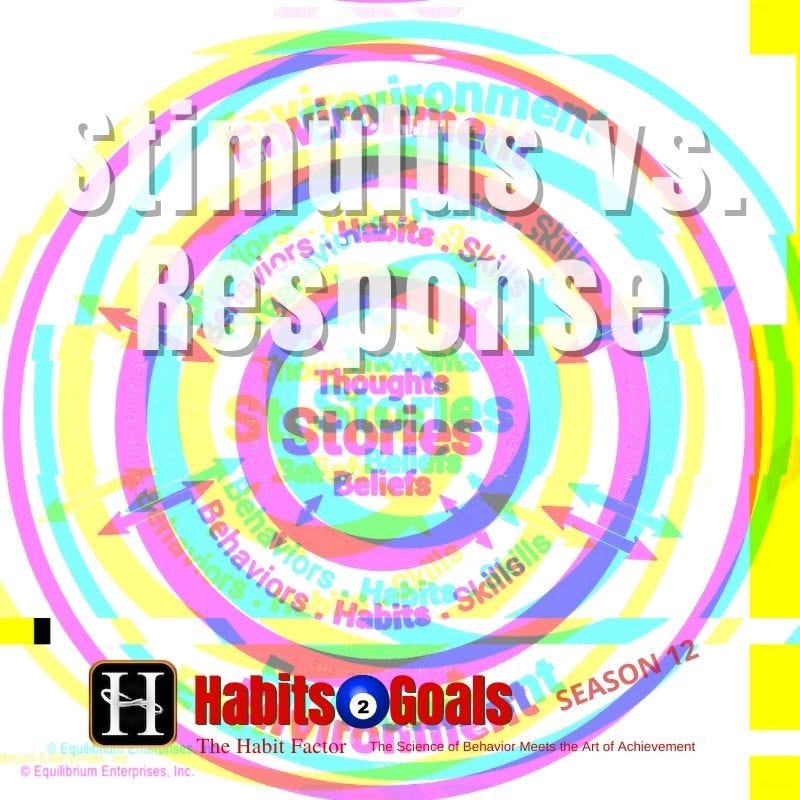
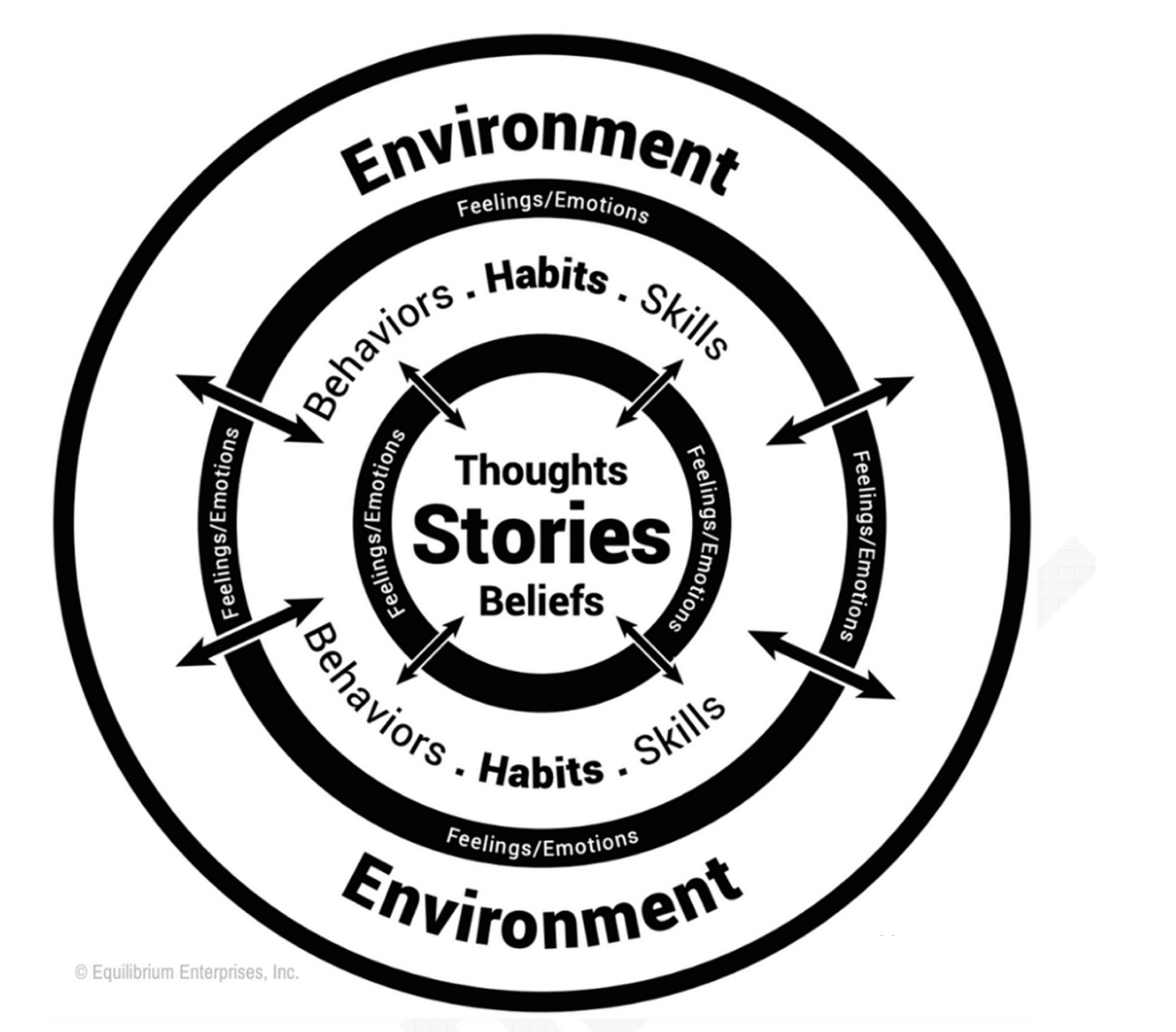







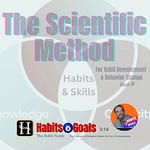
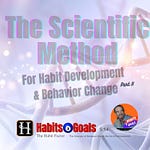
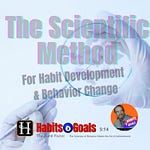

Share this post